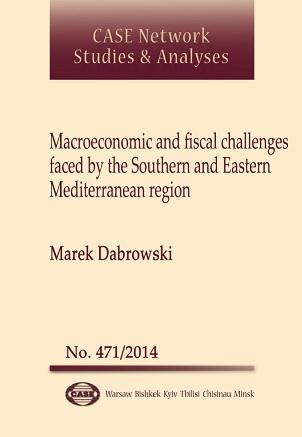Macroeconomic and fiscal challenges faced by the Southern and Eastern Mediterranean region
 The current fiscal imbalances and fragilities in the Southern and Eastern Mediterranean countries (SEMC) are the result of decades of instability, but have become more visible since 2008, when a combination of adverse economic and political shocks (the global and European financial crises, Arab Spring) hit the region. In an environment of slower growth and higher public expenditure pressures, fiscal deficits and public debts have increased rapidly. This has led to the deterioration of current accounts, a depletion of official reserves, the depreciation of some currencies and higher inflationary pressure.
The current fiscal imbalances and fragilities in the Southern and Eastern Mediterranean countries (SEMC) are the result of decades of instability, but have become more visible since 2008, when a combination of adverse economic and political shocks (the global and European financial crises, Arab Spring) hit the region. In an environment of slower growth and higher public expenditure pressures, fiscal deficits and public debts have increased rapidly. This has led to the deterioration of current accounts, a depletion of official reserves, the depreciation of some currencies and higher inflationary pressure.
To avoid the danger of public debt and a balance-of-payment crisis, comprehensive economic reforms, including fiscal adjustment, are urgently needed. These reforms should involve eliminating energy and food subsidies and replacing them with targeted social assistance, reducing the oversized public administration and privatizing public sector enterprises, improving the business climate, increasing trade and investment openness, and sector diversification. The SEMC may also benefit from a peace dividend if the numerous internal and regional conflicts are resolved.
However, the success of economic reforms will depend on the results of the political transition, i.e., the ability to build stable democratic regimes which can resist populist temptations and rally political support for more rational economic policies.
The analysis, prepared by Marek Dabrowski, can be downloaded here.

